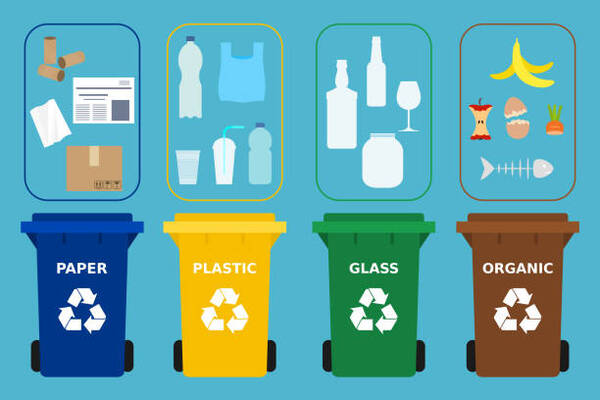- 1-905-452-8193
- Contact Us
- Member Login
- Get Listed Today
- 220,911 members

Waste segregation is the process of separating and organizing waste materials into different types. This type of waste management helps to reduce the amount of trash that ends up in landfills and skip bins Newcastle, allowing more efficient recycling and reuse. Waste segregation also makes it easier to identify hazardous materials, ensure proper disposal, and protect human health and the environment from contamination.
The first step in an effective waste segregation program is to separate wet or biodegradable wastes from dry or non-biodegradable ones. In a residential setting, this could entail dropping off organic kitchen scraps at a designated compost facility while disposing of plastic packaging, glass containers, paper products, and other non-recyclables in a separate bin.
Organic wastes include food scraps, yard trimmings such as grass clippings and leaves, and paper towels. All of these materials can be composted or used to create energy. Non-recyclable items include plastic bags, styrofoam packaging, bubble wrap, aluminium foil and containers, paper plates and cups, printer cartridges, diapers, pet waste, and hazardous materials such as paint cans or oil filters.
The next step in waste segregation is to separate recyclables into different categories. Depending on the local municipality’s regulations and the individual facility’s capabilities; this could include metal cans and bottles (aluminium/steel), rigid plastics 1-7 (containers such as water jugs), foam packaging/peanuts, glass jars and bottles, paper products (newspapers, office paper), cardboard boxes. Each of these materials should be dropped off at an appropriate recycling facility.
The last step in waste segregation is to segregate non-recyclable waste into hazardous and non-hazardous materials. Hazardous wastes include chemicals, radioactive material, medical supplies, batteries and other potentially dangerous items that must be disposed of properly through a licensed contractor or hazardous waste collection centre. Non-hazardous items such as construction debris can usually be taken to a landfill or skip bin for disposal.
Waste segregation is an important practice that should be adopted by everyone to protect the environment and promote sustainability. Here are several reasons why waste segregation is so important.
It reduces the amount of waste going to landfills
Segregating your waste means that recyclable materials can be easily identified and sent for recycling instead of being thrown away in a landfill. This helps reduce the amount of waste being sent to landfills and decreases environmental damage caused by landfills.
It increases resource efficiency
When organic, recyclable and hazardous materials are separated from each other it allows them to be reprocessed or reused with ease which increases resource efficiency.
It reduces environmental pollution
When non-recyclable materials are thrown away together with recyclable materials they can contaminate the recycled items and increase air, land and water pollution. By segregating your waste, you reduce the risk of contamination from non-recyclables.
It minimizes health risks
Hazardous materials can be dangerous for human health if not handled properly. Segregating these materials helps minimize exposure to potentially hazardous substances and reduces the chance of accidental injury or illness from coming in contact with them.
It promotes sustainability
Separating waste means that broken-down organic material can be used as fertilizer for plants or converted into biogas through anaerobic digestion processes. This helps promote sustainable practices and reduce the burden on natural resources.
It reduces costs
Segregating waste can help to reduce overall disposal costs as it prevents materials from being sent to landfills, allowing for cheaper and more efficient recycling processes.
It creates jobs
Separating waste means that there is a demand for workers in the recycling industry. This helps create jobs and boost the local economy while promoting sustainable practices at the same time.
It encourages composting
Organic materials can be easily separated which allows them to be composted or used to produce biogas instead of going into landfills. This can help decrease emissions of harmful gases such as methane and carbon dioxide while providing an alternative source of energy.
It is a simple solution
Waste segregation is something that everyone can do to help protect the environment and promote sustainability without any costly investments. All it requires is a little bit of effort and awareness about our actions and how they can affect the world around us.
It is important to remember that waste segregation is not only beneficial for the environment but also for humans. Adopting this practice helps create jobs, reduce health risks and promote sustainability efficiently and cost-effectively. Everyone should make an effort to segregate their waste and help protect our planet!
